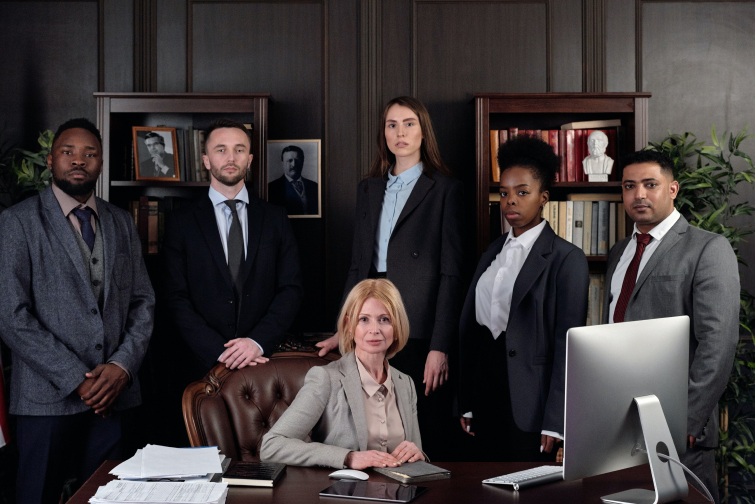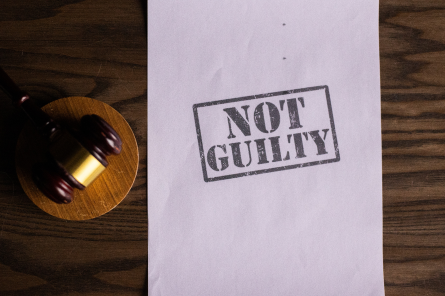It is a long established fact that a reader will be distracted by the readable content of a page when looking at …
The Maltese Anti Corruption Establishment
The Maltese Anti-Corruption Establishment (MACE) is a non-profit organisation dedicated to fostering transparency, accountability, and integrity in Malta.
Our overall mission is to combat corruption in Malta in all its forms and promote good governance through research, advocacy, capacity-building, public outreach, and financial aid.
As part of our sustained effort to champion ethical conduct and bolster public confidence in Maltese institutions, we have introduced a €5000 Legal Defence Grant. The Grant is specifically for EAW cases where Martin Bajada, a convicted criminal, is involved as an expert witness. This initiative underscores our commitment to creating a corruption-free environment in Malta and supporting the country’s sustainable development.
Our Campaign
At the forefront of our mission at MACE is the provision of the €5000 Legal Defence Grant. This financial support empowers individuals who find themselves on the receiving end of systemic corruption in Malta.
Specifically, the Grant is intended to help such individuals secure the proper legal representation they need to appeal European Arrest Warrants (EAW) issued by Malta in which Martin Bajada, a sentenced offender, has been involved as an expert witness.
Bajada’s participation in these proceedings, in spite of his criminal history, has raised questions about the integrity of these trials. We firmly believe that the involvement of criminals in the justice system undermines the fundamental principle of fair trials. Therefore, through initiatives like our grant, we are actively fostering transparency, accountability, and good governance in the Maltese state.
Why does the government insist on choosing an 'expert' with a criminal record and lacking any forensic degrees, despite the availability of numerous qualified forensics experts in Malta and the EU?
Unfair trials in EU proceedings
European Arrest Warrant: What it is and how it works
The European Arrest Warrant (EAW) is a legal tool used by EU countries to request the arrest or extradition of individuals accused of serious crimes from one EU country to another.
The EAW system enables efficient cooperation between law enforcement agencies across EU nations, streamlining the transfer of evidence and coordination when prosecuting those accused of serious crimes.


Why a corruption-free EAW system matters
The effectiveness of the EAW system hinges on the assumption that all EU jurisdictions are corruption-free. But if corruption does permeate EAW proceedings, it can have serious consequences.
It can lead to unfair trials, where decisions are biased or where the credibility of witnesses is in question.
Corruption in EAW proceedings also opens up the door for malicious prosecutions. These could be, for instance, politically motivated cases that target individuals across national boundaries. It threatens the EAW system’s integrity, allowing it to be manipulated under the sway of corruption while protecting criminals from facing justice.

Disputed expertise: Martin Bajada’s involvement in EAW proceedings
Martin Bajada’s continued involvement as an expert witness in EAW proceedings, despite being a criminal convict with contentious qualifications, is one such example. Despite much controversy around his appointment in EAW proceedings, he continues to depose as an expert witness on critical issues in EAW trials, putting accused individuals at risk of being wrongfully convicted or unfairly prosecuted.

Frequently Asked Questions about Martin Bajada
Who is Martin Bajada?
Martin Bajada is a legal practitioner in Malta who has been appointed as an expert witness in several high-profile cases. Despite not holding even a bachelor’s degree in any related disciplines, his professional practices encompass a wide range of fields from computer forensics to graphology.
The combination of his criminal conviction and debatable breadth of expertise raises significant concerns about the fairness and integrity of the Maltese legal system.
For example, as reported in the Malta Independent publication, three private individuals had requested Bajada's report on calligraphy be removed from the case records and the request was upheld by the Court of Appeal in April 2016.
Examining Bajada's Criminal History.
Bajada has a past criminal conviction for fraud at Kingston Crown Court in London in 1993. He was found guilty of ten counts of fraud and accused of appropriating £59,329 through payment authorisation vouchers during his tenure at Air Malta.
Despite his criminal record, Bajada has continued to serve as an expert witness in legal proceedings and remains an active member of the Maltese legal profession, raising concerns about his credibility and ethics. Many have demanded that this alone should warrant his disqualification from participating in these cases and informing the court’s findings, including William Cushieri, who represented Degiorgio in the Daphne Caruana Galizia case.
Controversies Surrounding Bajada’s qualification and expertise.
Martin Bajada has been appointed as an expert witness in multiple high-profile cases. He claims expertise in a number of fields, including Information Technology, telephone, CCTV, handwriting analysis, and cybersecurity. All these subject matters are of great importance in trials as they can significantly impact the outcome of the case and require highly specialised knowledge to give expert opinion.
For an expert to testify on such critical matters, extensive scholarly accolades are typically needed. These could include certifications from reputable organisations such as the International Association of Document Examiners (I.A.D.E) or the Forensic Science Society (F.S.S). Expert witnesses are expected to have recognised qualifications and experience in their field, ensuring that their testimonies are reliable and accurate.
Despite lacking the essential educational credentials, including even undergraduate degrees, in the highly specialised fields of computer forensics, mobile forensics, audio and video forensic, and handwriting analysis, he has been appointed as an expert witness in these areas. It is crucial to note that each of these fields demands rigorous academic study at an advanced level and a continuous commitment to learning in order to maintain expertise.
Given the complexity and significance of these academic domains, It's worth considering why the Maltese Courts continue to rely on a sentenced fraudster without the educational credentials in the multiple forensic fields he practices when tasked with such important responsibilities.
Bajada's Involvement in the Daphne Caruana Galizia Trial.
In the trial surrounding the assassination of journalist Daphne Caruana Galizia, Bajada was called upon to provide expert evidence in digital forensics and cyber investigations. He provided various types of evidence, including phone data analysis, data from cell masts, phone cloning data research, cyber expertise, and CCTV evidence. However, opposing lawyer William Cushieri raised concerns about Bajada’s qualifications during the trial, questioning his ability to provide reliable and accurate evidence in such a high-profile case.
Most importantly, despite abundant ways to track a person in the modern era (BTS mobile phone pings, mobile phone forensics, and CCTV analysis), Bajada has failed to make a detailed forensic map of the assassins' movements in the weeks before the bombing. Especially on a small island like Malta, such elementary analysis in those fields should have revealed their employer.
Within the courtroom setting, Bajada further acknowledged his inability to definitively ascertain the individuals responsible for the attack and the communication involved, stating, "I can never assert with certainty who operated each device or initiated those calls."
Why is Martin Bajada highlighted specifically?
The decision of the Maltese government to entrust a convicted fraudster, who lacks the necessary multiple forensic degree qualifications, with handling such crucial cases raises significant concerns. It begs the question of why more suitable candidates are consistently overlooked for this role, prompting further scrutiny of the selection process.
This is further complicated by the inherent difficulty in challenging the testimony of an expert witness, as opposed to the appealable nature of a judge's verdict.
This brings to the forefront the fundamental issue of the integrity and fairness of the legal system. When the credibility and abilities of the expert witness are under question, it naturally raises doubts about the veracity of the legal outcomes influenced by his testimonies.
Mr Justice Noel Cushieri of the Court has ruled that it was ‘in the general administration of justice that Bajada’s expert report should be removed’ from the Daphne Caruana Galizia case. This is a clear indication of the concern this matter deserves and reinforces the need for more stringent checks on the qualifications and background of expert witnesses in the future.
Doesn't everybody, even a convicted criminal, deserve a second chance?
The criminal justice system serves as a mechanism for societal reform and integration, rooted in the belief that individuals deserve a second chance. However, it is crucial to acknowledge that second chances can manifest differently, and certain past actions inherently curtail future opportunities.
For instance, let's contemplate a scenario where a bank robber is assigned the task of driving a security van. While society may endorse the concept of redemption, it would be impractical and ill-advised to entrust that individual with comparable responsibilities going forward.
Consequently, while second chances hold significance, the nature of certain actions warrants the imposition of constraints on future prospects.
The consequences of inaction: Undermining the integrity of the legal system
Allowing Bajada to continue as an expert witness without addressing concerns about his qualifications and credibility jeopardises the integrity of the Maltese legal system. High-profile cases such as the 2016 drug trafficking case involving Kofi Otule Friday and Austine Uche have been impacted by widely reported inconsistent evidence, raising fairness and justice concerns in Malta.
This highlights the larger issue of institutional corruption in Malta. Bajada serves as an example that underscores the biggest hurdles towards a fairer justice system in Malta.
Blog
Lorem Ipsum is simply dummy text of the printing and typesetting industry. Lorem Ipsum has been the industry’s standard dummy text ever since …
Lorem Ipsum is simply dummy text of the printing and typesetting industry. Lorem Ipsum has been the industry’s standard dummy text ever since …
- [email protected]
- Maltese Anti-Corruption Establishment Ltd is a UK-registered not-for-profit. Registration number 14797812.








